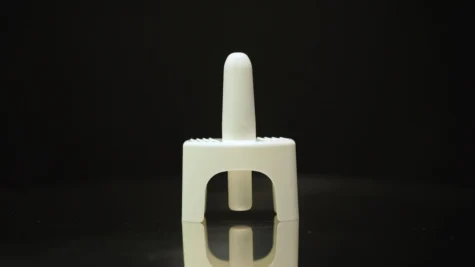Supporting a spouse struggling with addiction is an emotionally complex and challenging journey. A common dilemma faced by partners is distinguishing between supportive behaviors and those that may inadvertently enable the addiction. Striking the right balance between offering support and setting necessary boundaries is crucial for both your well-being and your spouse’s recovery.
Understanding Enabling vs. Supportive Behaviors
Enabling involves actions that, while often well-intentioned, allow the addicted individual to continue their substance use without facing the natural consequences of their behavior. These actions can perpetuate the addiction cycle and delay the decision to seek help. Examples of enabling behaviors include:
- Providing financial support that is used for substances.
- Covering up or making excuses for your spouse’s behavior.
- Taking over responsibilities that your spouse neglects due to their addiction.
In contrast, supportive behaviors encourage your spouse to take responsibility for their actions and seek recovery. Supportive actions include:
- Encouraging and assisting in finding professional treatment options.
- Setting clear and consistent boundaries regarding unacceptable behaviors.
- Attending counseling or support groups together to address the issue collaboratively.
The Importance of Setting Boundaries
Establishing healthy boundaries is essential in managing the dynamics of a relationship affected by addiction. Boundaries serve as guidelines for acceptable behavior and protect your emotional and physical well-being. They also provide a framework that can motivate your spouse to seek help. When setting boundaries:
- Be Specific: Clearly define what behaviors are unacceptable and the consequences of crossing these boundaries. For example, you might state that substance use is not permitted in the home and that violating this rule will result in a temporary separation.
- Communicate Openly: Discuss your boundaries with your spouse during a calm moment, expressing your concerns and the reasons behind these limits.
- Remain Consistent: Enforce the established boundaries consistently to avoid sending mixed messages. Inconsistency can undermine the effectiveness of boundaries and perpetuate enabling behaviors.
It’s important to recognize that setting boundaries is not an act of abandonment but a necessary step to encourage accountability and promote a healthier environment for both partners.
Recognizing Codependency
Codependency is a behavioral condition where one partner excessively relies on the other for emotional or self-esteem needs, often leading to enabling behaviors. Signs of codependency include:
- Struggling to be alone or fearing separation.
- Feeling responsible for your partner’s happiness and well-being.
- Insecurity without your partner’s validation.
- Fear of setting boundaries due to potential conflict.
- Needing your partner’s opinion for small decisions.
Recognizing these patterns is the first step toward establishing a healthier relationship dynamic.
Seeking Professional Support
Addressing addiction within a marriage often requires professional intervention. Consider the following resources:
- Individual Counseling: A therapist can help you understand your own behaviors, develop healthy coping mechanisms, and establish appropriate boundaries.
- Couples Therapy: Working together with a counselor can improve communication, rebuild trust, and create a unified approach to tackling the addiction.
- Support Groups: Joining support groups such as Al-Anon can connect you with others facing similar challenges, providing shared experiences and coping strategies.
- Professional Intervention: In cases where your spouse is resistant to seeking help, a structured intervention led by a professional can be an effective way to encourage treatment.
Prioritizing Self-Care
Caring for a spouse with addiction can be all-consuming, making it vital to prioritize your own well-being:
- Engage in Activities You Enjoy: Maintain hobbies and interests that bring you joy and relaxation.
- Build a Support Network: Lean on friends, family, or support groups to share your experiences and feelings.
- Practice Mindfulness: Techniques such as meditation or yoga can help manage stress and maintain emotional balance.
- Set Realistic Expectations: Understand that recovery is a personal journey, and you cannot control your spouse’s decisions. Focus on what you can manage—your actions and responses.
Southern Sky Recovery Can Help
Navigating the fine line between enabling and supporting a spouse with addiction is challenging but essential for fostering recovery and maintaining your own health. By understanding the difference between enabling and supportive behaviors, setting clear boundaries, seeking professional guidance, and prioritizing self-care, you create an environment that encourages positive change. Remember, taking care of yourself is not abandonment; it’s a necessary component of supporting your spouse effectively while preserving your own well-being.
At Southern Sky Recovery, we understand the complexities of addiction and its impact on relationships. Our comprehensive outpatient programs offer support for individuals and families navigating these challenges. If you or your spouse are seeking assistance, please reach out to us for compassionate and professional guidance.



